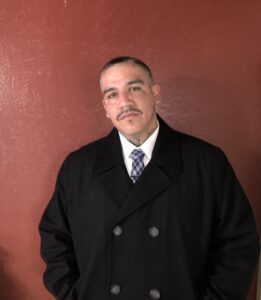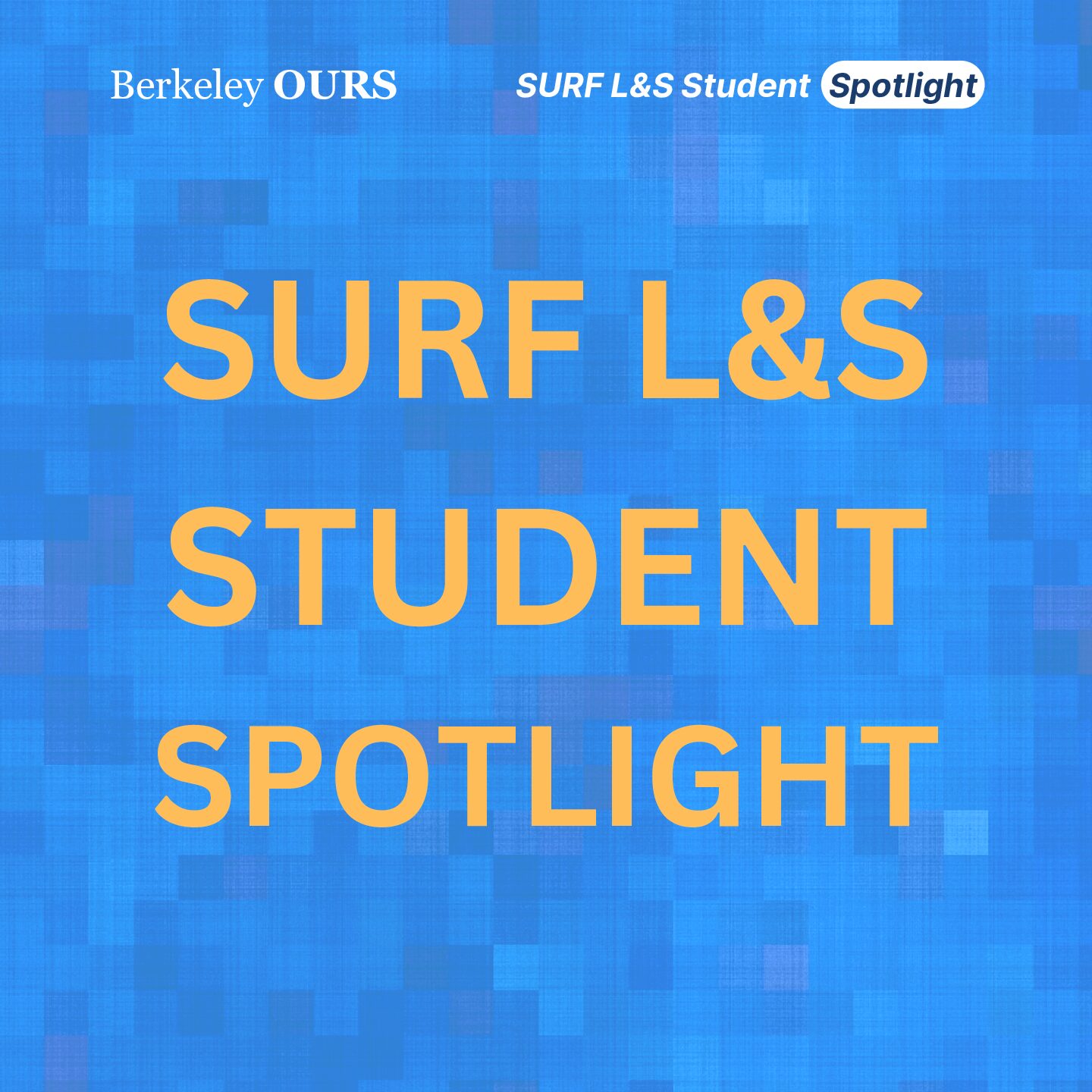Adrian Enrique Caceres (he/him/el) | Spring ‘25 | Sociology

Adrian (he/him/el) is one of our SURF L&S participants and is currently studying sociology. For his SURF L&S project, he researched how formerly incarcerated students experience social and academic stigma at higher education institutions such as UC Berkeley. Drawing on his lived experience as formerly incarcerated, Adrian advocates for breaking down the stigma and barriers attached to formerly incarcerated people.
What was your research question and how is it personal to you?
My question was: how do formerly incarcerated students experience social and academic stigma at a prestigious university like Berkeley? This research is personal to me based on my lived experience. People who have been classified as formerly jailed are frequently marginalized by society, which sees them through a negative lens that prevents them from understanding the complexity of their unique situation. They overlook the fact that trauma, pain, and addiction are just a few of the many things that might push someone in that direction. However, a significant change takes place during the rehabilitation process. You realize that your past mistakes do not define you; rather, the decisions you made were survival-based and influenced by the information and experiences available to you at the time. It is crucial to acknowledge each person’s humanity and the possibility of redemption that we all possess.
What are the larger implications of your research topic?
The implications of this research are profound, shedding light on the unique experiences of formerly incarcerated undergraduate students at prestigious institutions like the University of California, Berkeley. While much has been studied about the societal stigma faced by these individuals, there remains a notable gap in understanding the social and academic stigmas they encounter within such elite educational environments. This study seeks to explore how stigma affects classroom participation, peer interactions, and overall perceptions of their past among these students. By focusing on two distinct groups—those who gained admission independently and those who received support through the Underground Scholars Pipeline—I aim to uncover the nuanced experiences of stigma within this context.
The Underground Scholars, founded in 2013 from a simple book club, has evolved into a vital support network that advocates for formerly incarcerated students and fosters a sense of belonging. Interestingly, despite the weight of their past experiences, many participants do not perceive their history as a stigma; instead, they wear it as a badge of honor. Their resilience is evident in how they engage with their coursework, often gravitating toward subjects related to policing, law, and social justice. This choice reflects not only their lived experiences but also a commitment to using their education as a means of advocating for change. A common theme emerges: stigma does not significantly hinder their academic pursuits. Instead, they demonstrate remarkable dedication, often finding time outside of class to study and deepen their understanding of the material. This commitment highlights their discipline and the transformative power of education. Ultimately, this research aims to fill the existing gaps in literature by providing a deeper understanding of the social dynamics at play for formerly incarcerated students in prestigious universities. By amplifying their voices and experiences, we can foster a more inclusive dialogue around stigma, redemption, and the potential for academic success in the face of adversity.
What was the biggest challenge you confronted doing research?
My greatest challenge has been recruiting a substantial sample from a population that identifies as formerly incarcerated. While this group is expanding, it’s crucial to distinguish between those who have experienced incarceration firsthand and those who are considered system-impacted. The latter refers to individuals who may not have been incarcerated themselves but are deeply affected by the incarceration of a family member or spouse. My research specifically focuses on those who have served time, deliberately excluding the system-impacted, to gain a clearer understanding of their unique experiences and challenges.
What aspect of the SURF L&S program did you value the most or find the most rewarding?
What I found most rewarding was the mentorship process—working closely in a small cohort allowed me to receive invaluable feedback and guidance that significantly shaped my research. The staff at SURF were incredibly professional and supportive; whenever I emailed them with questions or concerns, they responded promptly and thoughtfully, ensuring I always had the resources and clarity I needed. Participating in the SURF program pushed me to grow both academically and personally, sharpening my skills and deepening my understanding of the research process.
How did participating in the SURF program help you grow?
Participating in the SURF program helped me grow both academically and personally in profound ways. Academically, it challenged me to refine my research skills, think critically, and engage deeply with my topic. Working in a small cohort with dedicated mentors provided me with constructive feedback and guidance that significantly shaped my approach to research. The program also taught me the importance of discipline and time management, as I had to balance intensive research with other commitments. Personally, SURF pushed me to step out of my comfort zone, communicate my ideas effectively, and develop confidence in presenting my findings. The professionalism and responsiveness of the staff further motivated me, as their prompt support created an environment where I felt encouraged and valued. Overall, SURF was a transformative experience that not only enhanced my academic abilities but also strengthened my resilience and passion for research.
Want to learn more about SURF L&S? Attend our info sessions:
Tues 12/10, 10-11AM | 3401 Dwinelle
Thurs 12/12, 11AM-12PM | Zoom
Wed 1/15, 10-11AM | Zoom
Thurs 1/16, 11AM-12PM | Zoom
Tues 1/21, 10:30-11:30AM | Dwinelle
Wed 1/22, 11AM-12PM | Dwinelle
For Zoom Link, Click Here.
